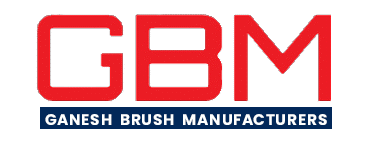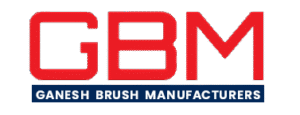Ever looked at a conveyor belt cleaning setup and thought, “It’s just a brush doing the job”?
Well, not really.
In industrial settings, those rotating cylinder brushes are like backstage technicians. They don’t get much attention, but they keep the entire system running clean and smooth. Whether it’s food, pharma, textiles, steel, or even mining, these brushes quietly handle everything from delicate dusting to heavy-duty scrubbing.
But here’s where it gets tricky.
Most people assume “a brush is a brush.” That’s like saying every tyre works the same on every terrain. Not true. The bristle material inside your Conveyor Belt Cleaning Brushes can massively impact cleaning quality, wear rate, surface finish, and even hygiene.
So, we’re putting two of the most popular bristle materials head-to-head: Nylon vs Polypropylene.
Let’s break it down like a real expert would, without the jargon, but packed with insight.
First, What Are Cylinder Brushes Anyway?
Before we dig into material choices, here’s a quick explainer. A cylinder brush is a rotating brush with bristles wound or set around a central core. These are commonly used for:
- Conveyor belt cleaning
- Surface polishing
- Deburring metal parts
- Applying liquids (like oils or wax)
- And even sweeping or washing industrial floors
Companies that deal with large-scale production or packaging use them daily, often without realising how much of a difference the right brush material can make.
If you’re already working with an industrial brush company, chances are they’ll recommend nylon or polypropylene as standard options. But that doesn’t mean both are interchangeable.
Meet the Contenders: Nylon vs Polypropylene
Let’s look at both materials up close, their personalities, if you will.
1. Nylon: The Smooth Operator
Nylon bristles are known for their flexibility and resilience. They have a nice memory, which means they bounce back well after repeated use. But what makes them special is their consistency, they clean evenly without damaging sensitive surfaces.
Quick character sketch:
- Soft touch but firm performance
- Works well in both wet and dry conditions
- Handles higher temperatures
- Excellent for applications involving oils or chemicals
2. Polypropylene: The Budget-Friendly Hustler
Polypropylene is more rigid and stiffer than nylon, especially at room temperature. It resists moisture like a pro and doesn’t soak up liquids easily. That’s why it’s often the go-to material in water-rich or high-humidity environments.
Quick character sketch:
- Tough, no-nonsense performance
- Highly resistant to acids, bases, and fungus
- Doesn’t absorb water, so there is no swelling or softening
- More affordable upfront
So far, both sound great. However, real decisions are never made based solely on features. They’re made on fit. Let’s match them with actual use cases.
Application-by-Application Faceoff
Conveyor Belt Cleaning in the Food Industry
If you’re running a setup that deals with bakery products, dairy, meat, or produce, you already know cleanliness isn’t just good practice , it’s law.
Best pick? Nylon.
Why? It’s smoother, more hygienic, and doesn’t leave micro-scratches that trap food particles. Additionally, nylon’s heat resistance allows it to withstand hot water washes or steam sanitisation, a standard part of daily cleaning.
That’s why most Industrial Brush Companies working with food-grade tools suggest nylon as the safer bet.
Bonus tip: Pair it with stainless steel core shafts for full food-grade compliance.
Pharma Manufacturing
Sterility and zero-contamination are everything here. And guess what? Nylon again takes the crown.
Why? Nylon bristles can be engineered with FDA-grade resin. Additionally, they don’t leach chemicals or degrade easily under disinfectants, a significant advantage in pharmaceutical zones where equipment cleaning occurs 2-3 times a day.
Additionally, most specialised & customised brush solutions for the pharmaceutical industry involve either ultra-fine nylon or antistatic nylon variants.
Heavy-Duty Surface Cleaning in Mining or Cement
This is polypropylene’s turf. These environments are brutal, think flying dust, mud, concrete, grease, and sometimes even caustic chemicals.
Polypropylene’s stiffness and chemical resistance make it an ideal choice here. Additionally, if the brush comes into contact with splashes of acid or lime, it won’t melt or lose its structure.
Heads-up, though: If the surrounding temperature regularly exceeds 90°C, polypropylene may start deforming. In that case, opt for heat-stabilised versions, and always ask your Industrial Brush Company for specification confirmation.
Car Wash Stations
Here’s a surprising fact: Polypropylene is more commonly used in car wash roller brushes than nylon. It’s not because it’s better overall but because it’s more cost-effective and works decently for short bursts of soft contact.
However, if you’re operating a premium or automated car spa that uses hot rinse cycles, nylon brushes last longer and are gentler on high-gloss paint.
Let’s Talk Temperatures (Because That Changes Everything)
You could have the best-designed Conveyor Belt Cleaning Brushes in the market, but if the bristles can’t handle your application temperature, you’re setting yourself up for failure.
Nylon’s sweet spot: Up to 120°C continuous. Can withstand temperatures of up to 150°C for short periods.(Made as per requirement only)
Polypropylene’s comfort zone: Up to 80–90°C max. Beyond that, it starts to warp.
If you’re working in environments like bakeries, autoclaves, or hot rinse lines, don’t even think twice – nylon is your go-to.
Moisture, Mould & Mildew
Here’s a game-changing insight. If your brush is exposed to continuous water (say, in fish processing or wet textile lines), polypropylene is more mould-resistant.
Nylon is hygroscopic. That means it absorbs water, not a lot, but just enough to swell slightly over time. This could cause your brush to go out of balance or lose its shape if left constantly wet.
In high-moisture, non-heat applications, such as aquaculture, outdoor sweeping, or agriculture, polypropylene is a better long-term choice.
Cost Comparison (Because Let’s Be Honest, Budgets Matter)
If you’re ordering brushes in bulk, this is where polypropylene earns a fan base. It’s 20–30% cheaper than nylon in most cases.
So, suppose your brushes are replaced every 3–6 months due to wear or cleaning cycles. In that case, polypropylene becomes a cost-effective choice, especially if you’re not dealing with high heat or ultra-precise cleaning requirements.
However, if you’re building a specialised & customised brush for precision tasks, a longer lifecycle, and surface protection, nylon pays off better in the long run.
Durability & Longevity
This one’s not black and white. Nylon is generally longer-lasting, but only if used in the right environment.
In oily, hot, or mixed media setups (like machine part cleaning, label scrubbing, or polishing), nylon is more forgiving.
Polypropylene wears out more quickly on hard metal surfaces or when exposed to harsh cleaning agents. But in dirty, wet, rugged zones like construction, it punches above its weight.
So think of it like this:
- Need consistency and surface protection? Go Nylon
- Need budget-friendly bulk cleaning? Go Polypropylene
Customisation: Can Both Materials Be Modified?
Yes. That’s where a company like Ganesh Brush Manufacturers steps in.
You can get:
- Nylon bristles in antistatic, FDA-approved, or colour-coded formats
- Polypropylene bristles with UV resistance for outdoor use
- Mixed-material brushes with both nylon and polypropylene segments for multi-tasking
- Variable density setups where soft and stiff bristles alternate for dual-purpose cleaning
That’s the beauty of working with an Industrial Brush Company that doesn’t just sell , but also designs Special & Customized brushes for Indian industries.
Final Word from an Industry Insider
In the world of industrial cleaning and process maintenance, even small components, such as brushes, can significantly impact efficiency, hygiene, and long-term costs. And choosing between nylon and polypropylene is not just a material choice, it’s a strategic business decision.
Think beyond the price. Consider lifespan, surface sensitivity, ease of cleaning, and operating temperature.
And most importantly, don’t settle for one-size-fits-all. Every process deserves a custom-fit brush that’s made for its rhythm.
Need a Custom Cylinder Brush? Let’s Talk.
At Ganesh Brush Manufacturers, we don’t just supply brushes; we engineer them to suit your line, machine, and process. With decades of experience, in-house design expertise, and a legacy rooted in industrial problem-solving since the 1980s, we’re proud to be a trusted Industrial Brush Company based in Pune, serving clients across India.
Whether it’s conveyor belt cleaning brushes, Industrial Cylindrical Brush assemblies, or a special and customised brush design you need, we’re ready to help.
Talk to Ganesh Brush Manufacturers today and upgrade your cleaning game.





